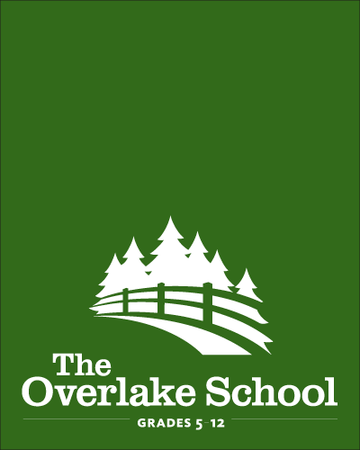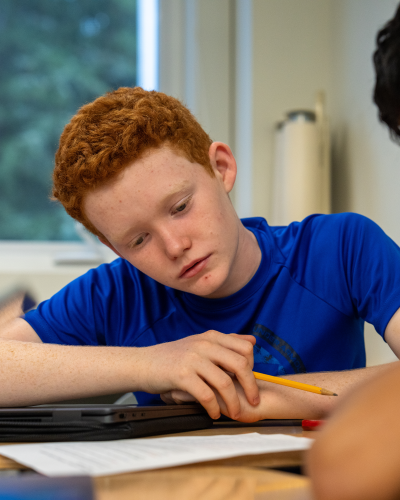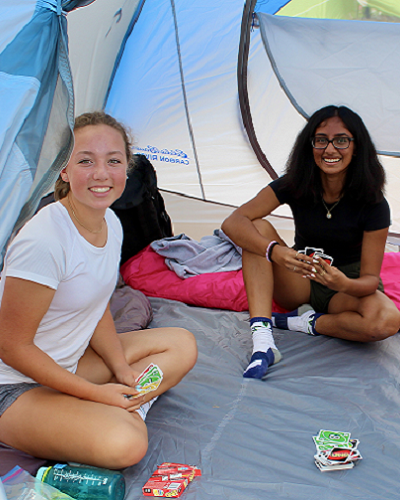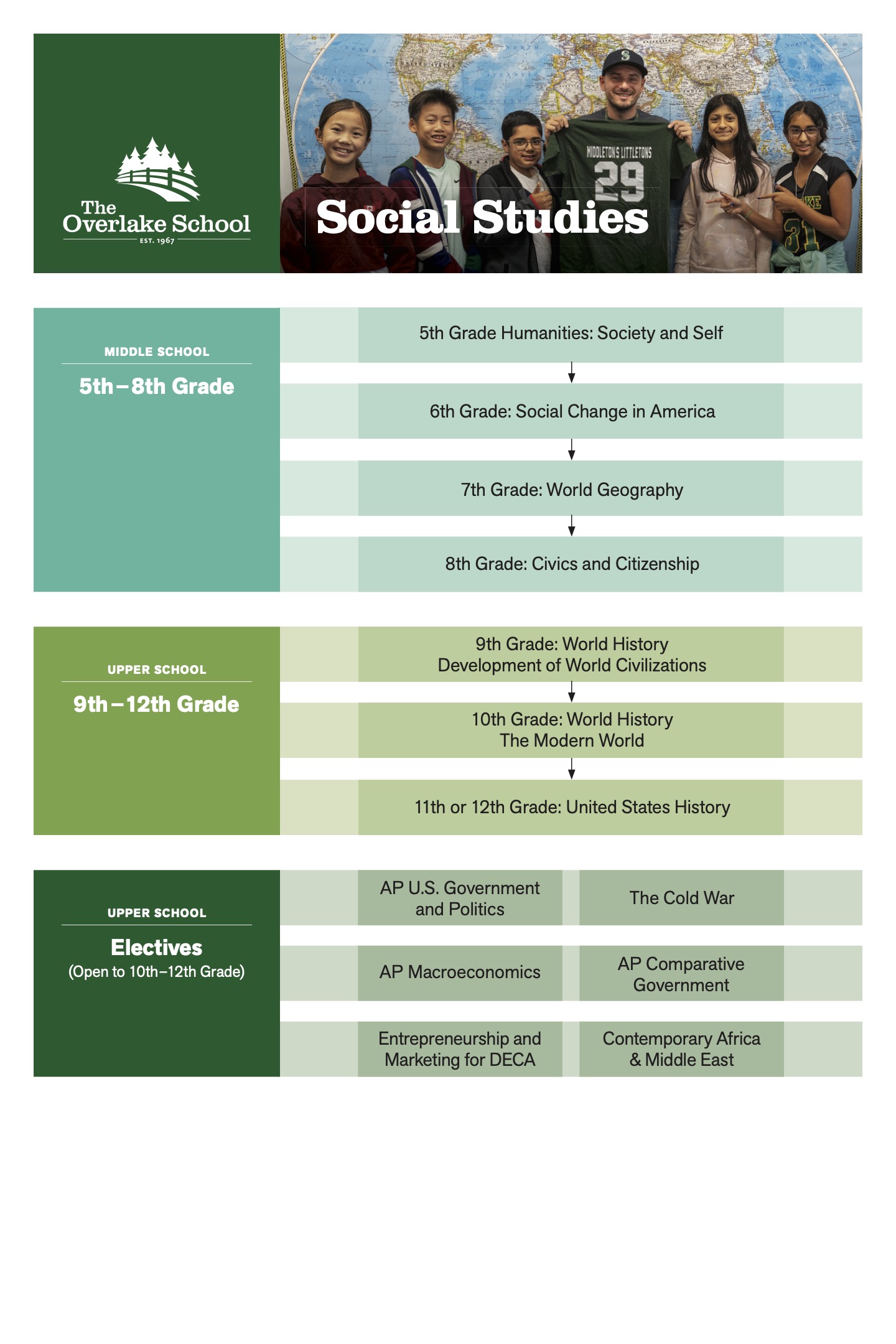Social Studies
Department Mission
The Overlake School Social Studies Department’s mission is to create a challenging, relevant, and engaging curriculum to inspire our students to become critical thinkers, effective communicators, and active and open-minded citizens of the world. Our curriculum at every level values the rich history of our shared cultural diversity and seeks to enrich our students’ understanding of our world by nourishing their curiosity and civic engagement.
Core values
Social Justice: Our curriculum teaches about past and present injustices done to different groups and individuals to show the complexity of our collective history and examine the human condition. We challenge students to understand both the roots of the injustice, the reasons and ways in which people have fought such injustice and to understand the current issues that continue to create injustice in our society. We encourage our students to understand and embrace the reasons why we should continue to actively engage in making improvements and change to become a more just society.
Global Perspectives: We strive to help students understand the interconnectedness of world events and how one action in one place in the world can and often affects others throughout the world. We also expose our students to many different points of view and ways of thinking in an effort to allow them to see how different people and cultures view similar issues in many valid ways that should be taken into account when making decisions about how to engage with others.
Civic Engagement: We seek to present our students with real-world opportunities for engagement in the classroom, in our community and our world. We want our students to be aware and curious about contemporary civic issues, and we challenge them to care and become involved in improving the world around them.
Historical Awareness: We believe that critically examining our history helps our students be prepared to tackle tomorrow’s challenges and opportunities. While we understand that it is impossible to cover all of human history, our curriculum is designed for students to examine critical past events so that they may make connections across human history and experiences.
How we teach
The Social Studies Department uses an inquiry-based approach to teaching through student-centered learning practices and a thematic curriculum that balances skills and content. We use a variety of sources and perspectives to teach concepts and events, with the goal of using the past as a tool to understand the present. We seek to foster students’ curiosity, empathy, and independent thinking by examining assumptions through an inquiry-based approach in our lessons. We create student-centered learning environments to encourage active learning and critical thinking through a variety of methods including structured discussions, research, analytical writing, and oral presentations.
Curriculum Requirements
Three years of social studies are required for graduation: World History 9, World History 10, and U.S. History. Students may take U.S. History in either grade eleven or twelve.
Social Studies 5: Society and Self
Grade 5 Social Studies dovetails with English in a humanities course that integrates the study of stories and cultures. Students explore the relationship between past and present using maps, charts, and other geographic tools to better understand people, places, resources, and environments on earth. They observe and analyze the interaction between people, the environment, and culture, in order to understand what constitutes a civilization. Students develop critical thinking skills, such as supporting a claim with facts and transferring knowledge to new scenarios, through study of these essential questions:
- Who am I? How do I express myself?
- Where am I in place and time? What are necessary human stories to be heard?
- Who are the change makers? How do our stories prompt change, growth and revolution? How does the world work?
- How do we organize ourselves? How is the natural world organized? What human needs require structure?
- Who are the stakeholders in sharing? How can we share the planet? What are planetary outcomes in sharing?
Within the context of these questions, student work focuses on literature studies, vocabulary activities, and the writing process. Students also complete projects, presentations, simulations, essays, and contests in geography, spelling, poetry, and short stories, including Battle of the Books. Resources include our class young adult fiction books, a teacher-made anthology of poems and short stories, references to the History Alive textbook, and guest speakers, in addition to a wide range of articles and texts in our extensive online databases.
Social Studies 6: Social Change in America
Grade 6 Social Studies presents a thematic study of the transformation of American society and human experience from pre-contact to the postbellum period through the lens of four systems: economics, law, environment, and government. Beginning with an investigation of systems, students consider the nature of choice and compromise when diverse groups must solve problems for their collective survival and prosperity. Subsequently, students evaluate what it means to be an American, how natural environments affect human settlement, the tension between law and freedom, and whether progress is the same for everyone. Students examine the impact of fundamental tenets of American society – equality, liberty, free will – on indigenous peoples, early colonialism, and 19th century civil rights movements, and apply the lenses of socio-political and religious diversity to the patriation of the American West. Students explore issues of identity, cultural assimilation, and citizenship, including the relationship between individuals and government, the rights and responsibilities of citizens, and the roles active citizens play in effecting change.
The curricular year is divided into six learning units with the following general topics:
- Physical geography of North America with a focus on Washington state;
- Culture, laws, and social practices of First Americans;
- Exploration and colonization of North America by Europeans;
- Establishment of independence through rebellion and war;
- Establishment of a nation under Constitutional law;
- Expansion of territorial boundaries and population growth from immigration; and
- Washington and Northwest history as case studies for American experiences.
The units are interdisciplinary and incorporate primary document study, map work, writing, discussion, and performance. Students engage in a variety of learning activities, including debate, essay writing, role play, and creating brochures and posters.
Issues of identity, culture, and change frame the course. When appropriate, current events are addressed and compared to the past to help students construct a framework for understanding social studies across time and place. Readings come from narratives that capture the sense and feel of historical periods and cultural change and from a variety of textual resources. When possible, primary sources and narratives are used to give students exposure to authentic voice and experience. Students participate in individual and cooperative projects throughout the school year. Projects are designed to hone the students’ research and presentation skills and develop creative abilities through visual and verbal expression.
Social Studies 7: World Geography
Grade 7 Social Studies is a cultural and physical geography course designed to open students up to the world and how it works. We consistently revisit the theme, "Where you live shapes how you live." The course is grounded initially in physical geography, and we spend the early portion of the year solidifying our understanding of landforms, maps, and where things are located in order to build the skills necessary to study the world as geographers. After that, our exploration of the world and its different cultures takes off, and we approach various regions of the world with the same questions: What is the physical layout of this area? What are some of the cultural characteristics of this area? What are the connections between these two ideas?
In addition to this regional approach to cultural and physical geography, students in the course are expected to keep a close eye on current events, as they are discussed in class on a regular basis and students are encouraged to develop their own opinions. There are also specific concepts and themes that we cover with each region and occasionally revisit throughout our journey. Some of the learning units and concepts include the fundamentals of physical geography, globalization, climate change, environmental access, demographics, urbanization, spatial inequality, colonization and imperialism, migration, climate change, refugees and human rights, culture, and history in South, Southeast, and East Asia, Africa, the Middle East, Europe, and Latin America.
Social Studies 8: Civics & Citizenship
Grade 8 Social Studies fosters informed and active citizenship through study of democracy, propaganda, and the political and legal system created by the United States Constitution, including governments at the local, state, and national level. Students investigate individual rights and explore historical and current political and social issues. They learn that citizenship involves forms of civic engagement that go beyond the academics and the simple act of voting: each student engages in a personal challenge for 30 days to learn about something of community importance that they want to help improve, change, or explore.
The course asks students to do considerable analytical work through their written and oral expression. They develop their note-taking skills and ability to read critically, conduct extensive research to support their ideas, and are challenged to write persuasive pieces. Students express in a variety of written and oral forms throughout the year, including a formal debate and many discussion opportunities. Students are asked to continually work on exploring a variety of perspectives, challenge their opinions, and consider many points of view. Students are also expected to engage with current events and consider their stands on issues that affect us all.
World History 9: Development of World Civilizations
In Grade 9 Social Studies, we examine the development of early human societies. In the first semester, we start with a brief unit exploring how history is written, by whom, and why that matters. Then we examine the social, political, economic, and cultural systems of the kingdoms of Nubia and Aksum in northeast Africa, the Qin and Han Dynasties in China, the Roman Republic in the Mediterranean, and indigenous societies in Central/South America and Pacific. In the second semester, we explore the changes that occurred as those global regions became increasingly interconnected through the spread of religious beliefs, trade networks and the exchange of knowledge/ideas, new technological innovations, and war/conquest.
Students work on a range of skills, including analytical writing, research, and effective public speaking (both in oral presentations and seminar discussions).
World History 10: The Modern World
In Grade 10 Social Studies, students gain an extensive knowledge of major changes and events of the 19th and 20th centuries in various parts of the world. Through varied and engaging activities in class and major assignments, they improve their skills in critical thinking, writing, discussing, presenting, and researching. By the course's end, students have gained an improved understanding of political, social, and economic world developments from 1800 to 1960. We focus on themes of equality and justice, how major changes occur, and make links between what has happened in the past with events happening at the present.
Honors United States History
World History 9 and 10
The third year in the three-year U.S. history sequence (with Grades 6 and 8), this course is a study of significant events and patterns in United States history. This is not a survey course; rather, the course is thematic. We want students to develop critical thinking and communication skills, explore topics in depth, and make connections to current events. Therefore, the course focuses primarily on the 19th to 21st centuries and past events are connected to life in the U.S. today.
As a result of taking this course, students will:
- Increase their knowledge and understanding of U.S. history.
- Increase their understanding of how past events inform the present.
- Become more informed and engaged citizens.
- Strengthen their critical thinking skills, including their ability to construct persuasive oral and written arguments.
- Increase their understanding of differing perspectives on key issues.
AP U.S. Government and Politics
The AP U.S. Government and Politics course challenges students to analyze and interpret the intentions of the various institutions that comprise the American political system and the U.S. government. The practical and theoretical understanding of policy-making and power as it pertains to Constitutional principles, federalism, political parties, interest groups and the media, and individual rights and liberties serves as the foundation of the course. Students will explore concepts through projects, case studies, and written assessments in conjunction with preparation for the final AP exam in May.
View the College Board AP U.S. Government and Politics Course Description.
Contact
Karen Zaidberg
Social Studies Department Chair
kzaidberg@overlake.org
425-602-7124




